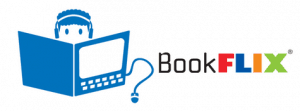calsfoundation@cals.org
6BBF Author Profile: Rabbi Rachel Mikva
 Religion can be quite a tricky topic, rife with landmines of misunderstanding and stubbornness. Rabbi Dr. Rachel Mikva finds herself as the bearer of what some might call an unpopular opinion when it comes to religion in her latest book, Dangerous Religious Ideas: The Deep Roots of Self-Critical Faith in Judaism, Christianity, and Islam. She argues that all religious ideas are dangerous, even those that stand at the heart of faith. She reveals how faith traditions have always passed down tools for self-examination and debate, because all religious ideas—not just extremist ones—can cause harm, even as they also embody important moral teachings.
Religion can be quite a tricky topic, rife with landmines of misunderstanding and stubbornness. Rabbi Dr. Rachel Mikva finds herself as the bearer of what some might call an unpopular opinion when it comes to religion in her latest book, Dangerous Religious Ideas: The Deep Roots of Self-Critical Faith in Judaism, Christianity, and Islam. She argues that all religious ideas are dangerous, even those that stand at the heart of faith. She reveals how faith traditions have always passed down tools for self-examination and debate, because all religious ideas—not just extremist ones—can cause harm, even as they also embody important moral teachings.
Religious beliefs, or religious convictions, as they’re called, drive home how important these beliefs are to many people. Her exploration of religion involves debating the nature of truth and holding a space open for doubt, which can feel new and maybe a bit wrong for some—especially those with a religious background. She states that “the same convictions that inspire compassion, commitment, and inclusivity can justify brutality, apathy, and intolerance.” She believes that religion can transmit values that can both shape and  challenge cultural norms. While some of her ideas may be controversial, she believes that anyone who is religious should be challenging their beliefs. “I say to my students, ‘If you never wake up in the middle of the night with a deep dread, thinking that the world might be a better place without religion, you are not paying close enough attention.’”
challenge cultural norms. While some of her ideas may be controversial, she believes that anyone who is religious should be challenging their beliefs. “I say to my students, ‘If you never wake up in the middle of the night with a deep dread, thinking that the world might be a better place without religion, you are not paying close enough attention.’”
Rabbi Mikva is a professor of Jewish Studies at Chicago Theological Seminary and senior faculty fellow of its InterReligious Institute, training leaders who can build bridges across cultural and religious difference for the critical work of social transformation. Her first book, Broken Tablets: Restoring the Ten Commandments and Ourselves, was identified as a UAHC Significant Jewish Book in 1999.
CALS was able to ask Rabbi Mikva a few questions prior to the Six Bridges Book Fest.
CALS: What was the process involved with writing your book?
Mikva: It took forever! How do you capture the complexity of religious thought and history and make it a readable book? But I loved digging into the teachings that show no religious idea has always meant what we think it does. And the contemporary relevance just came pouring out.
CALS: What was your favorite part of the writing process?
Mikva: I love getting colleagues to read and offer feedback—then see the words through their eyes.
CALS: What inspired you?
Mikva: I deeply want religion to be a force for blessing in the world—and, for that, we need to cultivate the deep roots of self-critical faith.
Follow Rachel Mikva on Twitter, check out her webpage here, and make sure to mark your calendar for her panel with Sabeeha Rehman and Walter Ruby on Sunday, October 24, at 8 p.m.



